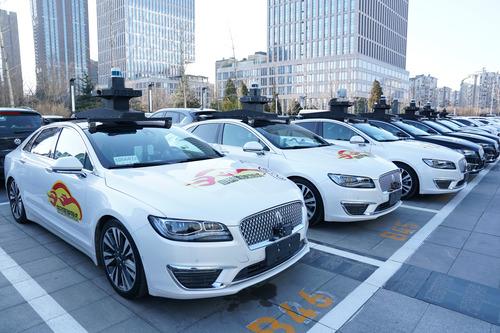BEIJING, March 6 (Xinhua)-- Self-driving vehicles have travelled more than 1.04 million km on Beijing's roads over a two-year period ending December, according to a recent industry report.
In 2019, 73 self-driving cars from 12 companies drove more than 886,600 km in Beijing, an increase of 577 percent from the distance in 2018, according to the Beijing self-driving vehicles road testing report compiled by the Beijing Innovation Center for Mobility Intelligent, an officially-authorized third-party service agency for autopilot vehicle road testing in the capital city.
Self-driving cars from Baidu top the list in the report, traveling 893,900 km over the two-year period, including more than 754,000 km in 2019. The company expanded its self-driving fleet in Beijing to 52 last year.
Five vehicles from Guangzhou-based Pony.ai came second with around 111,200 km in 2019.
Japanese automaker Toyota came the third with four cars traveling 11,100 km last year.
The report said the road testing in Beijing has been safe and controllable with few impacts on traffic, and most companies adopted the plan of cameras, millimeter-wave radar and LiDAR.
LiDAR, also known as Light Detection and Ranging, is one of the crucial sensors used in self-driving cars. The report said more companies chose LiDAR of local brands. The proportion of domestic brand LiDAR increased from 20 percent in 2018 to 40 percent last year.
The report also revealed data about disengagement in which human drivers take control of the self-driving car. About 86 percent of disengagement is due to the replacement of data recording equipment, changes in planned routes or personal reasons of the human drivers. Only 14 percent is attributed to system failures or algorithm bias.
In March 2018, Beijing earmarked 33 roads with a total length of 105 km for autonomous car testing in Yizhuang, Shunyi and Haidian, all of which are outside the Fifth Ring Road and away from densely-populated areas.
According to a government plan, test spaces for driverless vehicles and intelligent connected vehicles in the capital are expected to reach 500 sq km by 2022, and a total of 2,000 km of roads will also be open for testing.




 A single purchase
A single purchase









